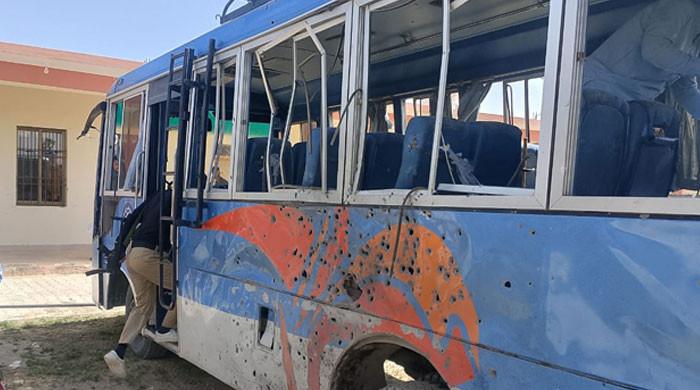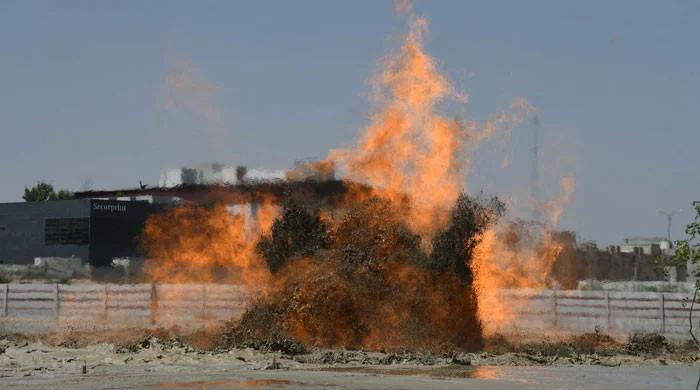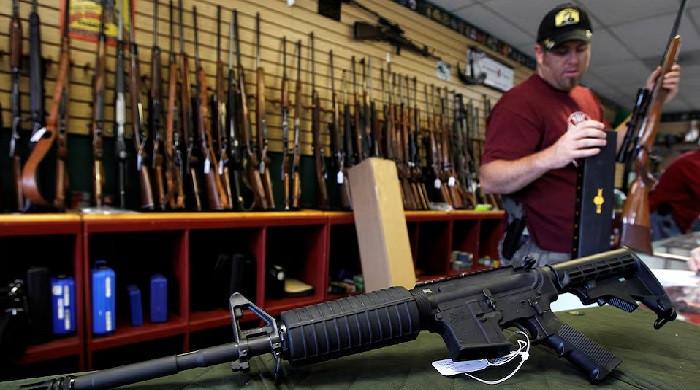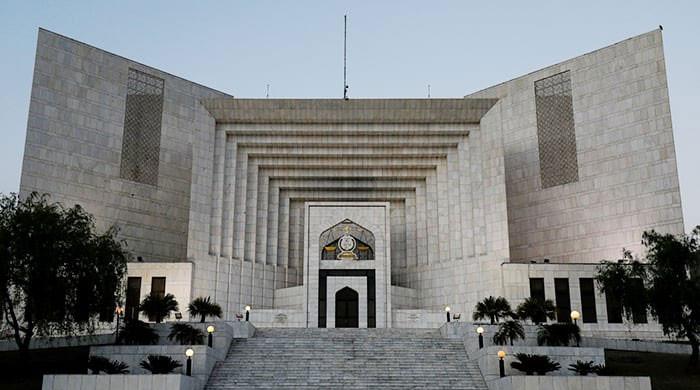The place she called home: Foundation of Jufelhurst school lies in rubble
The school has been targeted in the past as well for vested interests
May 25, 2017
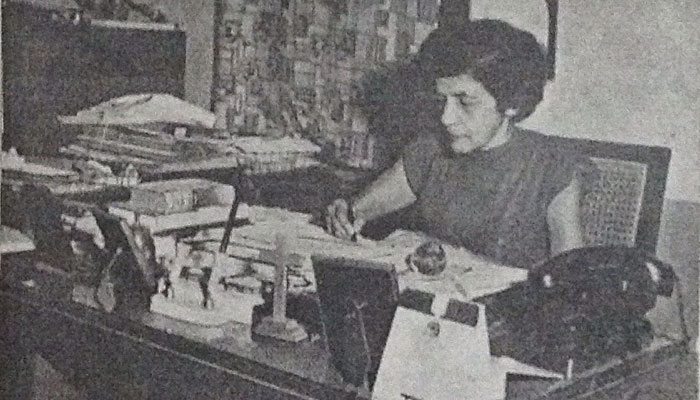
KARACHI: It was not a mere heritage site to be preserved and protected. The building of Jufelhurst Government Secondary School that was razed down one April night was where the school started from in 1931.
“The school was in my own home; my parents were so kind as to spare me three rooms in the house, which are still in use at present…” the school’s first magazine published on the 37th anniversary of the institute quoted S D’Abreo, the founder and then principal, as saying.
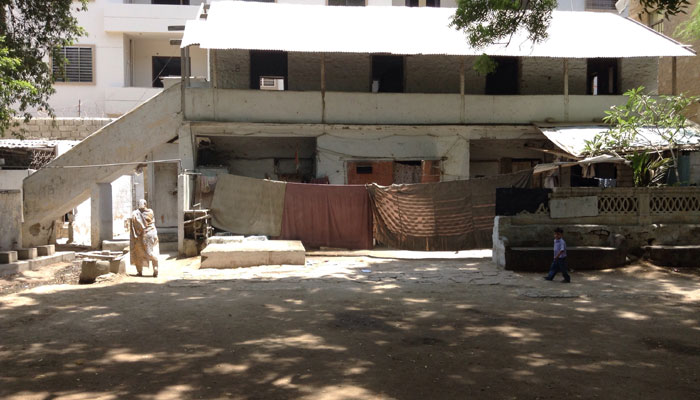
As one walks into the school gate and towards the razed building, it shows how D’Abreo did not run the school as a sole owner but made sure the sense of belonging was shared by all those who were working for the school in some way or the other.
The premises has a house for the school’s domestic staff, while adjacent to it stands the canteen that is being run by a family for decades now.
“My father was given this space to set up a canteen,” Bilquis, who runs the canteen with her brother, told Geo.tv. “But after his death, my brother and I work here.”
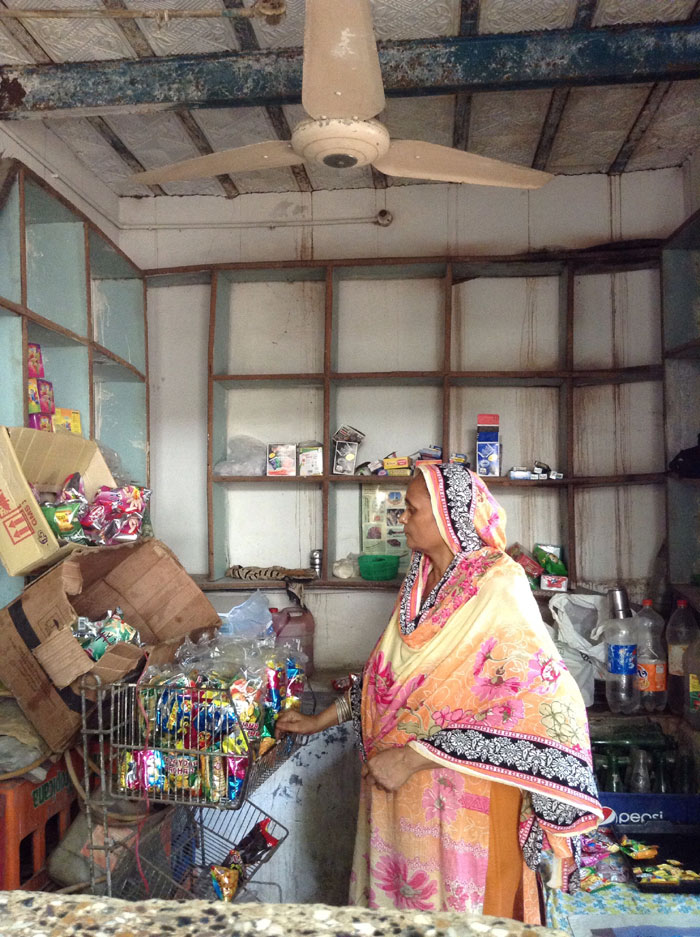
Although classes continue to be held on the premises, the main area that was the foundation of the school lies in rubble now, making teachers, students, locals and even the alumni worry for the rest of the structure.
Relevant officials have visited the school but no one has taken any initiative to start work on the school, which is in dire need of renovation, a teacher said, pointing towards the science laboratory behind her.
The school has been targeted in the past as well for vested interests, with no concrete steps being taken to protect and renovate the structure.
However, the school that was started with the pure purpose of imparting education has a group of alumni, who feel the place which was once their home should stay for the generations to come.
“We have a group on social media where alumni who are now in different countries discuss what they can do to protect the school,” Athar Aslam, a school alumnus, told Geo.tv. “But they too are reluctant to readily spend money as no one is sure whether the school would stay or be bulldozed just like a part of it was.”
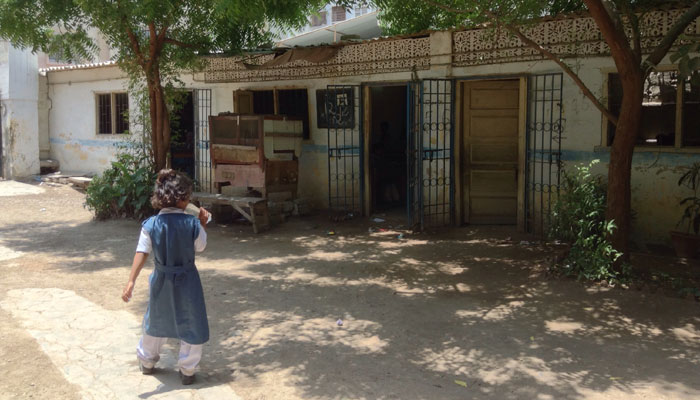
Nevertheless, the alumni try to keep the environment of the school lively in whatever capacity possible, as the school area does not even have a single swing or see-saw for students to run to when break time starts.
“We had started holding events on result days where we would distribute certificates among the high achievers,” Aslam said. “We would do it just so that students stay motivated to come to school.”
Aslam maintained they want the school to continue to run as otherwise the academic future of at least 700 girls would be at stake.
“There are at least 700 girls from the localities nearby, who study at the school,” he maintained. “If the school closes down these girls would not have a better facility to switch to as the schools around here [Soldier Bazaar area] do not provide quality education.”
Many parents would not send their daughters to other areas for schools, eventually having them to sit at home, Aslam said with concern in his voice.




